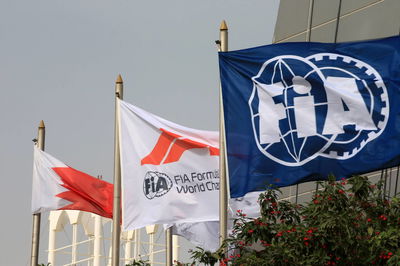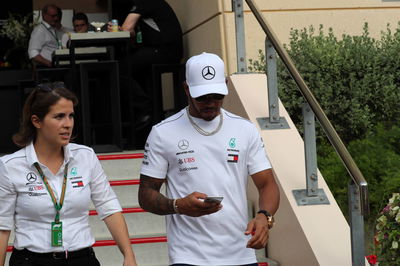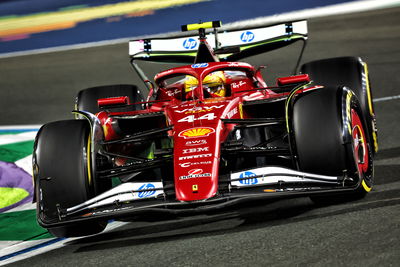F1 reveals key proposals for 2021 rules
Formula 1 has released its key proposal points in a meeting with all teams and the FIA as Liberty Media sets out its ideas for the sport from 2021.
With the Concorde Agreements set to expire at the end of the 2020 season it marks a vital moment in F1’s future with commercial rights holders Liberty looking to shake-up the sport to attract fans and new manufacturers.

Formula 1 has released its key proposal points in a meeting with all teams and the FIA as Liberty Media sets out its ideas for the sport from 2021.
With the Concorde Agreements set to expire at the end of the 2020 season it marks a vital moment in F1’s future with commercial rights holders Liberty looking to shake-up the sport to attract fans and new manufacturers.
While the rumours of Liberty’s plans have been hit by a backlash from some teams, with Ferrari issuing a quit threat last November, the US owners have pressed forward and presented its future ideas to all the teams and the FIA in Bahrain ahead of the second round of the 2018 season.
Liberty has outlined five key areas which it is looking to implement new or altered plans: the power unit configurations, a cost cap, a more even revenue distribution between teams, updating sporting and technical rules while also simplifying the FIA governance of F1.
F1’s Chairman and CEO Chase Carey, who replaced Bernie Ecclestone at the head of the sport just over a year ago, says the proposals have been produced to protect the sport’s current strengths while improving other areas which have been continually criticised by both fans and teams.
“Formula 1 is a sport with a rich history,” Carey said. “We want to preserve, protect and enhance that history by unleashing F1s potential, by putting our fans at the heart of a more competitive and more exciting sport.
“We are driven by one desire: to create the world’s leading sporting brand. Fan- centred, commercially successful, profitable for our teams, and with technological innovation at its heart.”
Heading F1’s key changes is the future regulations of the engines which has been a priority of Ross Brawn’s since coming on as Liberty’s managing director for motorsports. Last year the former Mercedes and Ferrari boss outlined a simplification of the current 1.6 V6 turbo engines while keeping the hybrid elements to ensure the power units remain road relevant and maintain interest to manufacturers both in and keen to join the sport.
One of the more confrontational issues has been a potential cost cap which is expected to be $150million per year for each team while certain bonuses have been retained in order to appease fears from Ferrari. Under the proposed rules, it is understood that Ferrari's bonus will be cut, but that all engine manufacturers will receive an additional payment.
Liberty is also eager to eliminate the overly complicated rules to help fans and teams improve the spectacle of the sport.
As part of a bid to streamline F1's governance, the sport looks set to lose the Strategy Group, with the rule-making process set to include the F1 Commission, the Technical Working Group and the World Motor Sport Council.
Full Liberty F1 plan breakdown:
Power units (PU)
• The PU must be cheaper, simpler, louder, have more power and reduce the necessity of grid penalties.
• It must remain road relevant, hybrid and allow manufacturers to build unique and original PU.
• New PU rules must be attractive for new entrants and Customer teams must have access to equivalent performance.
Costs
• We believe how you spend the money must be more decisive and important than how much money you spend.
• While there will be some standardised elements, car differentiation must remain a core value
• Implement a cost cap (expected to be $150m per year) that maintains Formula 1 position as the pinnacle of motorsport with a state-of-the-art technology.
Revenues
• The new revenue distribution criteria must be more balanced, based on meritocracy of the current performance and reward success for the teams and the Commercial Rights Holder.
• F1s unique, historical franchise and value must and will still be recognised.
• Revenue support to both cars and engine suppliers.
Sporting and technical rules & regulations
• We must make cars more raceable to increase overtaking opportunities.
• Engineering technology must remain a cornerstone but driver’s skill must be the predominant factor in the performance of the car.
• The cars must and will remain different from each other and maintain performance differentiators like aerodynamics, suspensions and PU performance. However, we believe areas not relevant to fans need to be standardised.
Governance
• A simple and streamline structure between the teams, the FIA and Formula 1.











